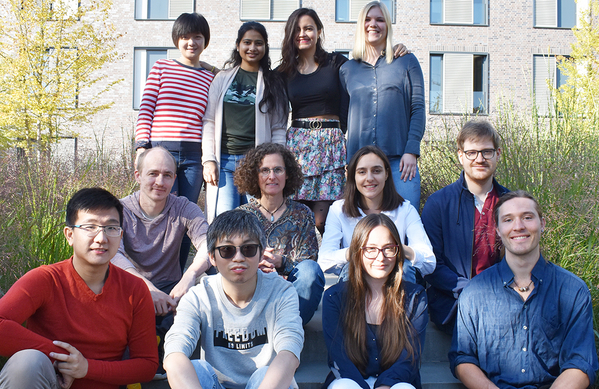Selective protein degradation and aging
1 PhD project offered in the IPP summer call Molecular Mechanisms in Genome Stability & Gene Regulation
Scientific Background
Protein quality control systems maintain a functional proteome through detection and removal of abnormal proteins. Due to inherent inefficiencies of cellular processes, formation of abnormal proteins is a constitutive problem. Moreover, proteome homeostasis can be challenged by stress conditions, disease mutations and declines with aging. Thus, understanding how cells deal with abnormal proteins is not only important from the point of view of basic research but will also contribute to understanding the molecular events of the aging process.
Various types of abnormal proteins are recognized by the ubiquitin-proteasome system via short motifs called degrons and marked for proteasomal degradation. A wide variety of degrons can be found at protein termini across all eukaryotes. We have recently identified a pathway that specifically targets degrons located at protein C-termini. This C-degron pathway has unexpectedly broad specificity, recognizing a variety of C-degron motifs, but its functions remain largely unknown (Kong et al. 2023 biorxiv).
PhD project: Quality control of mislocalized proteins
In this project, we will dissect functions of C-degron pathways through a combination of high-throughput screening, molecular biology, genetics and biochemistry. We will take advantage of powerful yeast genetics and high-throughput mutagenesis approaches to identify endogenous substrates of C-degron pathways and understand their functions in protein quality control and aging.
We are looking for a highly motivated individual with a degree in Molecular Biology, Biochemistry, Biotechnology or related fields. The successful candidate will join an enthusiastic team and combine genetic screening approaches with deep mutational scanning, proteomics, biochemistry and molecular biology techniques to uncover substrates and functions of C-degron pathways. Excellent core facilities in the institute will provide the necessary support with mass spectrometry, sequencing and flow cytometry requirements of the project.
If you are interested in this project, please select Khmelinskii as your group preference in the IPP application platform.
Publications relevant to the project
Kong KYE, Shankar S, Rühle F, Khmelinskii A (2023) Orphan quality control by an SCF ubiquitin ligase directed to pervasive C-degrons. biorxiv doi: 10.1101/2023.08.13.553125 Link
Kong KYE*, Fischer B*, Meurer M*, Kats I, Li Z, Rühle F, Barry JD, Kirrmaier D, Chevyreva V, San Luis BJ, Costanzo M, Huber W, Andrews BJ, Boone C, Knop M# and Khmelinskii A# (2021) Timer-based proteomic profiling of the ubiquitin-proteasome system reveals a substrate receptor of the GID ubiquitin ligase. Mol Cell, 81:2460-2476.e11 Link
Koren I, Timms RT, Kula T, Xu Q, Li MZ, Elledge SJ (2018) The eukaryotic proteome is shaped by E3 ubiquitin ligases targeting C-terminal degrons. Cell doi: 10.1016/j.cell.2018.04.028 Link
Kats I, Khmelinskii A, Kschonsak M, Huber F, Knieß RA, Bartosik A, Knop M (2018) Mapping degradation signals and pathways in a eukaryotic N-terminome. Molecular Cell 70:488-501 Link
